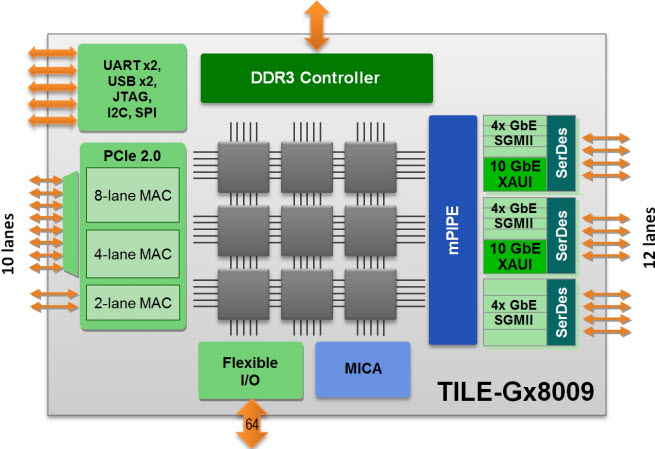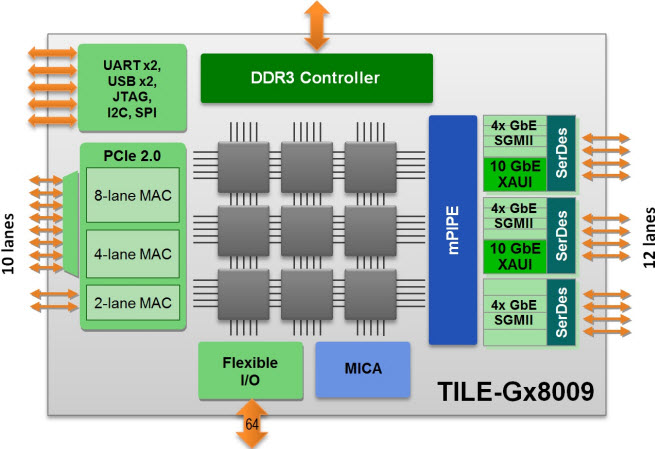Tilera is unveiling a speedy chip with nine cores (computing brains) for networking, multimedia, and general-purpose computing applications.
The new Tile-Gx9 chip can tackle at least nine tasks at the same time, and it does so while consuming less than 10 watts of power, a level that puts it on par with chips that go into low-power laptops or tablet computers. Typically, Tilera makes chips with many more cores; by reducing the number of cores, it is reaching down into a new competitive space for low-power devices.
But San Jose, Calif.-based Tilera isn’t necessarily targeting those hardware categories in particular. Rather, it is creating a low-power 64-bit chip that customers who already use its 16-core and 36-core Tile-Gx processors can use for compute and input-output intensive applications. Those include networking applications such as 10-gigabit-per-second routers and firewall appliances, intrusion prevention and detection appliances for networks, unified threat management systems, Layer 7 deep packet inspection, networked storage platforms, wireless access controllers, network monitoring at high speeds, streaming video services and content delivery networks, and high-definition video conferencing with multichannel h.264 encode and decode.
“We are seeing enormous market traction and design win activity with our 16- and 36-core Tile-Gx processors, unseating embedded processors and other difficult-to-program devices,” said Devesh Garg, the president and CEO at Tilera. “Customers need unprecedented levels of performance and performance-per-watt to stay competitive and they simultaneously want to reuse their software and hardware investments across their product portfolio.”
The chips run the Linux operating system and are produced in a 40-nanometer manufacturing process. Tilera says the chips are available now and more than 75 product designs based on the chips are in the works.
The chip will be described at the Linley Tech Processor Conference in San Jose, Calif.
“We offer a range of router solutions spanning from small office to very large enterprise,” said Wei Wen, vice president of execution at Maipu. “Tilera is the company that covers the broadest range of performance and price points with their TILE-Gx family. We can deploy the TILE-Gx9 in multiple products in our rapidly expanding portfolio.”
Tilera was founded in 2004 and it has 100 employees. Rivals include Cavium, Broadcom/Netlogic, and Freescale. Tilera has raised more than $109 million from Bessemer Venture Partners, Walden International, Columbia Capital, Broadcom, Cisco, Quanta Computer, Samsung Ventures, Venture Tech Alliance, NTT Finance, Artis Capital and West Summit Capital.



